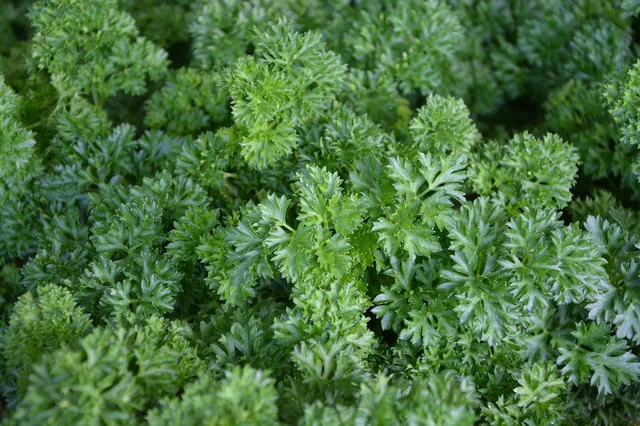Parsley: A Versatile Herb with Many Health Benefits
Parsley, a common herb used to improve the taste of foods and for medicinal purposes for many centuries. Parsley is an annual with small, brightly colored leaves and white flowers. This plant is part of the Apiaceae Family, which also includes celery, carrots, Cumin and dill.
Many culinary recipes around the globe include parsley. Parsley is used to enhance the flavors of many dishes. You can use it fresh or dried. You can also use parsley in herbal teas or tinctures. It has been traditionally used to treat many ailments.
Parsley's health benefits have been gaining attention in recent years. Research has shown that parsley is rich in antioxidants which can help to protect cells against damage from free radicals. Parsley also contains vitamin A, C and K as well as minerals like Calcium, Iron and Magnesium.

Parsley's Purported Benefits
Research suggests that parsley could have a variety of health benefits. These benefits may include:
- May reduce Inflammation
- May help improve digestion
- Might help lower cholesterol
- Supports healthy hair and skin
- May help lower Blood Sugar levels
- This may help to prevent some types of cancer
The claims of benefits are based upon animal and laboratory research . More research will be needed to verify these findings. Parsley can be eaten in moderation and is considered safe.
Parsley Expertise from Professionals and Specialists
Experts believe that parsley may have a variety of health benefits. Frank Lipman (a prominent integrative doctor and the author of The New Health Rules) states that parsley "is a powerhouse in nutrition, which could be beneficial for many ailments such as arthritis, asthma and other inflammatory conditions."
Dr. Lipman recommends parsley in soups and salads. To maximize the health benefits of parsley, Dr. Lipman suggests that it be paired with other spices and herbs, including Rosemary, Oregano and Garlic.
Parsley: How do you get started?
It is best to slowly increase the amount of parsley you eat, and then gradually add it into your daily diet. You can find fresh parsley in many grocery stores or grow it your self. It can be used as an ingredient in salads, soups and sandwiches.
Parsley supplement can be purchased as well as dried parsley. Dryed parsley must be kept in cool and dark places for six months after purchase. There are many options for parsley Supplements. They come as a tablet, powder or liquid form. The recommended dose varies depending upon the brand and type.
Do you need to be aware of any side-effects?
Parsley can be eaten in moderation and is generally considered safe. It is possible for side effects to occur if you consume too much parsley. Parsley consumption can cause upset stomachs, nausea, vomiting and diarrhea. Before consuming large amounts of parsley, Pregnant Women or nursing mothers should speak to their doctor.
Parsley may interact with anticoagulants or diuretics. Talk to your doctor before you start taking parsley and parsley supplements if you're taking medication.
Conclusion
The popular herb parsley has been around for many centuries. It is used both for medicinal and culinary purposes. It may have a variety of health benefits including improving digestion, supporting hair and skin health, as well as lowering inflammation. Parsley is safe when taken in moderation. However, it's important that you consult your doctor before using parsley supplements or other parsley products.
Parsley can be used in a number of ways, including as a supplement to many dishes. Parsley can be a great addition to any diet. It may even help improve your health.